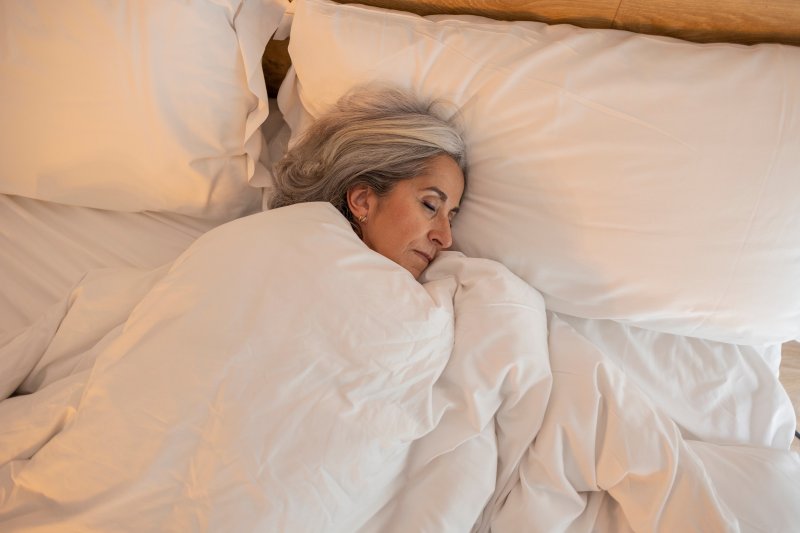
Sleep apnea is a condition that causes the airway to become constricted many times over the course of a night, resulting in frequent sleep interruptions that can take a major toll on a person’s quality of life. The condition can reveal itself through a variety of symptoms, one of which being drooling. Here’s what you should know about sleep apnea and how to tell if your nocturnal drooling means that you should see a sleep dentist.
What Is Obstructive Sleep Apnea?
Obstructive sleep apnea is a breathing disorder that results in momentary halting of normal breathing during sleep, and it is more common in older people and people who are overweight. While sleeping, a person with sleep apnea’s airway will become constricted as the muscles and other tissues around their throat relax and weigh more heavily upon it. This condition can potentially cause more than a hundred sleep interruptions in a single night, and it can lead to symptoms such as:
- Snoring, choking, or gasping during sleep
- Awakening during the night
- Headaches in the morning
- Trouble focusing during daily tasks
- Trouble staying awake during the day
- Drooling during sleep
How Can Sleep Apnea Lead to Drooling?
If a person is having difficulty breathing during sleep, they may favor breathing through their mouth rather than their nose. The mouth being open can allow saliva to flow from the mouth, which can potentially lead to embarrassing moments in the morning as well as symptoms such as a sore throat or dry mouth.
How Can Sleep Apnea Be Treated?
While sleep apnea should be treated by a sleep specialist, there are a few home remedies that can provide relief. A few of these include:
- Sleeping on your back: This will reduce how much saliva gravity can pull from your mouth.
- Propping up your head during sleep: While laying on your back can lead to more interruptions during sleep, propping your head and upper back up with cushions or pillows can reduce the weight your relaxing neck tissues exert on your airway, allowing you to sleep more soundly.
A qualified sleep dentist can provide you with treatments that address the underlying causes of sleep apnea. By getting a better night’s sleep, you can look forward to a better day ahead.
About the Author
Dr. Michael E. Michel earned his Doctor of Dental Surgery at the University of Missouri-Kansas City School of Dentistry and specializes in sleep medicine. He has completed much advanced training on the subject and has extensively studied the non-surgical treatment of temporomandibular joint dysfunction. His office in Topeka, KS offers sleep apnea and TMJ treatments. If you are worried that you might have sleep apnea, contact his office online or dial (785) 273-0801.
